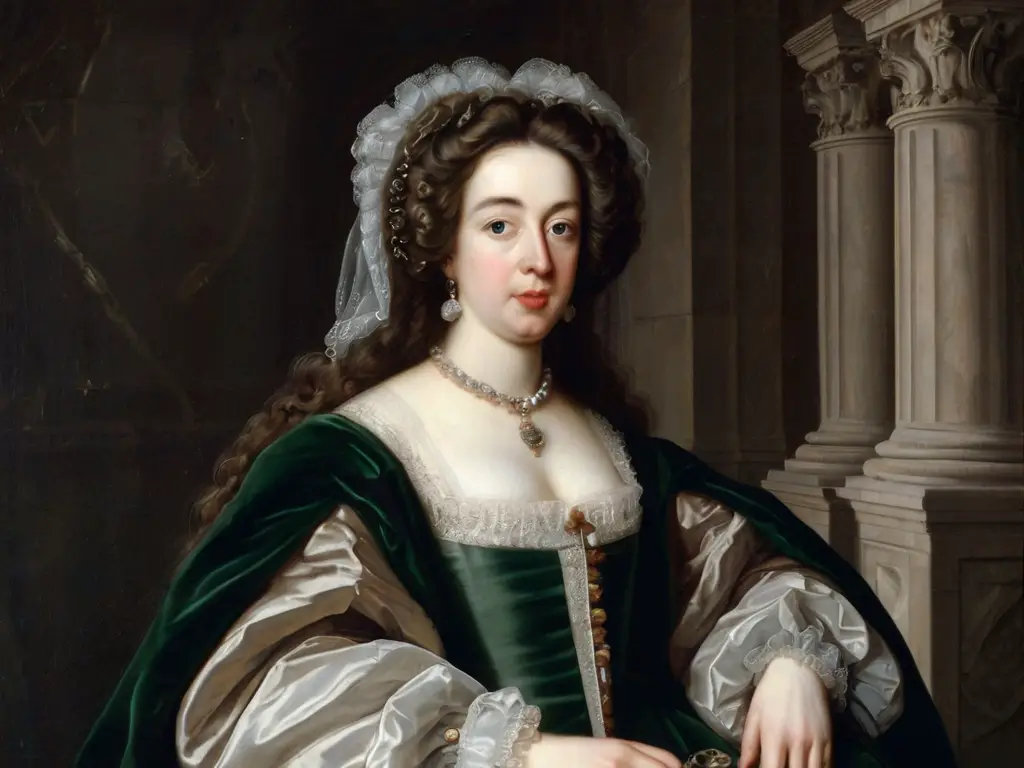
The Enlightenment was a period of immense intellectual and cultural growth, often characterized by the contributions of male philosophers like Voltaire, Rousseau, and Kant.
However, women philosophers also played a crucial role in shaping Enlightenment thought.
This article highlights the lives and works of ten remarkable women philosophers who made significant contributions during this transformative era.
Margaret Cavendish (1623–1673)
Margaret Cavendish was a groundbreaking English writer and philosopher who challenged the conventional thinking of her time.
She was known for her innovative ideas and bold approach to science and philosophy.
Contributions
Cavendish wrote influential works like “Observations upon Experimental Philosophy” and “The Blazing World.”
In these writings, she explored complex ideas about reality, the human mind, and the universe.
Unlike many of her contemporaries who supported the mechanistic view of the universe (which saw everything as a machine operating under physical laws), Cavendish emphasized the role of imagination and experimental science.
She argued that understanding the universe required more than just mechanical explanations; it involved creativity and imagination as well.
- Read also: Enlightening the World: The Lasting Impact of the Age of Enlightenment
- Read also: The Age of Enlightenment vs. the Scientific Revolution: A Tale of Two Revolutions
Legacy
Cavendish’s ideas laid the foundation for future discussions in philosophy and science.
Her work helped shape early feminist thought and natural philosophy, paving the way for later thinkers to build upon her innovative concepts.
Anne Conway (1631–1679)
Anne Conway was an English philosopher whose work had a significant impact on metaphysical and theological thought.
Contributions
Conway’s primary work, “The Principles of the Most Ancient and Modern Philosophy,” offered a critique of Cartesian dualism, which divided the world into mind and matter.
Instead, she proposed a monistic view where all substance is interconnected and fundamentally one.
Her ideas anticipated later developments in monism and influenced other philosophers like Leibniz.
Legacy
Conway’s challenge to dualism and her ideas about the nature of substance established her as a key figure in the history of philosophy.
Her work contributed to the evolution of metaphysical thought and laid important groundwork for future philosophical exploration.
Émilie du Châtelet (1706–1749)

Émilie du Châtelet was a French philosopher, mathematician, and physicist who made notable contributions to the Enlightenment era.
Contributions
Du Châtelet is most famous for her translation and commentary on Isaac Newton’s “Principia Mathematica.”
Her work made Newton’s groundbreaking ideas more accessible to French-speaking audiences and helped spread his influence.
Additionally, her work “Discourse on Happiness” examined what constitutes happiness and how to achieve it, highlighting the importance of intellectual pursuits and personal satisfaction.
Legacy
Du Châtelet’s efforts in promoting Newtonian physics were crucial in advancing Enlightenment thought.
Her contributions to both science and philosophy have had a lasting impact, making complex scientific ideas more understandable and accessible.
Mary Wollstonecraft (1759–1797)
Mary Wollstonecraft was an English writer and philosopher known for her advocacy for women’s rights.
Contributions
Wollstonecraft’s landmark work, “A Vindication of the Rights of Woman,” argued for the education and empowerment of women.
She emphasized the importance of reason and education in achieving gender equality.
Her arguments laid the foundation for modern feminist thought and called for women to be given the same opportunities for education and personal growth as men.
Legacy
Wollstonecraft’s ideas on women’s rights and education have had a profound and lasting influence.
Her advocacy for gender equality helped inspire future generations of feminists and advocates for women’s rights.
Caroline Lucretia Herschel (1750–1848)
Caroline Lucretia Herschel was a pioneering German astronomer whose work made significant strides in the field of astronomy.
Contributions
Herschel discovered several comets and played a crucial role in compiling detailed star catalogs.
Her work expanded our understanding of the night sky and demonstrated her exceptional skill in observational astronomy.
Notably, she was the first woman to receive a salary as a scientist and the first woman to be honored with the Gold Medal of the Royal Astronomical Society.
Legacy
Herschel’s groundbreaking achievements in astronomy opened doors for women in science.
Her accomplishments helped pave the way for future female astronomers, showing that women could excel in fields traditionally dominated by men.
Laura Bassi (1711–1778)

Laura Bassi was an Italian physicist and academic who made significant contributions to science during the 18th century.
Contributions
Bassi was one of the first women to earn a doctorate in science and was appointed as a professor at the University of Bologna.
She taught and conducted research in physics and natural philosophy, publishing several influential papers.
Bassi was also a member of various scientific societies, which helped her gain recognition in the scientific community.
Legacy
Bassi’s achievements challenged the gender norms of her era and opened doors for future generations of women in academia.
Her work demonstrated that women could make substantial contributions to science and education.
Madame Deshoulières (1638–1694)
Antoinette Deshoulières was a French poet and philosopher known for her contributions to literature and philosophy.
Contributions
Deshoulières wrote poetry and philosophical essays that explored themes like nature, love, and the human condition.
Her work was well-regarded in her time and contributed to the cultural and intellectual life of the Enlightenment.
Legacy
Deshoulières’ literary and philosophical works helped shape the Enlightenment’s intellectual landscape.
Her achievements highlighted the important role of women in the arts and humanities during a period when female voices were often marginalized.
Angélique de Saint-Jean Arnauld d’Andilly (1624–1684)
Angélique de Saint-Jean Arnauld d’Andilly was a French Jansenist nun and philosopher with a focus on theology and philosophy.
Contributions
Arnauld d’Andilly wrote extensively on religious and philosophical topics, emphasizing personal piety and intellectual rigor.
Her works contributed to the Jansenist movement, which offered a critical perspective on the dominant theological views of her time.
Legacy
Her contributions to religious philosophy and her involvement in the Jansenist movement demonstrated the diverse intellectual pursuits of women during the Enlightenment.
Her work reflected a deep engagement with theological and philosophical issues.
Oliva Sabuco de Nantes (1562–1622)

Oliva Sabuco de Nantes was a Spanish philosopher and medical writer known for her innovative ideas on health and the human mind.
Contributions
Sabuco’s major work, “New Philosophy of Human Nature,” explored the connection between mental and physical health.
She advocated for a holistic approach to medicine, emphasizing that mental well-being was crucial for overall health.
Her ideas were ahead of their time, suggesting a broader understanding of health that included psychological factors.
Legacy
Sabuco’s pioneering thoughts on holistic medicine and psychology have had a lasting influence.
Her work contributed to later developments in these fields, demonstrating the relevance of mental health in medical practice.
- Read also: Breaking Barriers: 9 Powerful Women in Ancient History
- Read also: Legendary Women: 5 Famous Women of the Middle Ages
Conclusion
The women philosophers of the Enlightenment played a crucial role in shaping the intellectual landscape of their time.
Despite the societal challenges they faced, these remarkable women made significant contributions to philosophy, science, and literature.
Their works continue to inspire and influence modern thought, highlighting the enduring importance of diversity in intellectual pursuits.


